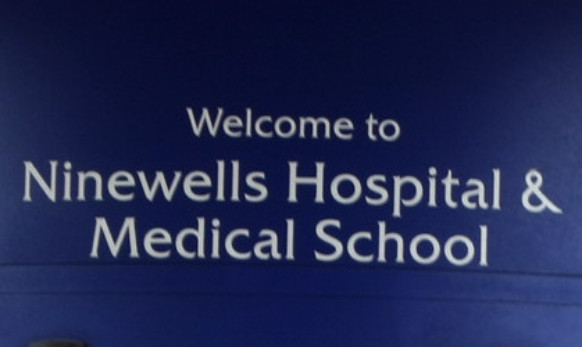NHS Tayside has denied claims that 20 patients were left in the corridors of an admissions ward at Ninewells Hospital.
In a hard-hitting report by Healthcare Improvement Scotland, exclusively revealed in The Courier on Saturday but only published on Wednesday, inspectors reported they had found patients lying on trolleys as ward 15 was oversubscribed during their visit in September.
However, NHS Tayside chairman Sandy Watson said the patients were in reality: “in the middle of the ward undergoing assessments but not yet admitted into a bed either in the AMU (Acute Medical Unit) or into another ward.”
Mr Watson also pointed out that 70% of the recommendations for improvement had already been implemented when inspectors came for a second visit.
Following a visit to Ninewells in September, the Care for Older People in Acute Hospitals report on Ninewells Hospital raised 17 areas requiring improvement, including issues with patients’ food and fluid intake and mealtimes along with concerns raised over dignity and respect of patients in the mixed unit. The report praised several areas where improvements had been made.
Sandy Watson acknowledged the NHS Tayside Board was “disappointed” by some of the findings.
“We would like to reassure our patients and their families that we have addressed the areas for improvement which have been highlighted by the inspectors and already implemented 70% of the recommendations.
“It is very reassuring to hear that overall patients were very positive about the care they received.
“Ninewells is an extremely busy place and sometimes we don’t get things right 100% of the time. However, we are committed to making improvements.
“One example of this drive for improvement is the redesign of the Acute Medical Unit (AMU), which was formerly wards 14 and 15 at Ninewells.
“Over the course of the past 14 months, in a project led by the doctors and nurses in the unit, the environment of care at the AMU has been transformed to ensure patients being referred to the unit can be assessed as quickly as possible in a care setting which respects their privacy and dignity.
“We have increased the number of beds in the AMU to ensure there is available capacity for patients who need clinical assessment and this has improved patient flow.
“I am pleased to say that the significant improvement work which has been undertaken throughout 2012 was acknowledged by the inspectors in their unannounced follow-up inspection to the area last week.”
Lead clinician at the AMU, Consultant Nicola Irvine, said the extended unit, due to be completed in mid-February, is able to implement care plans for patients more quickly and will have consultants or senior staff available seven days a week.
She said when she started with NHS Tayside in 2000 there was one consultant at ward 15. Once the unit is completed there will be eight consultants with differing specialities available, along with more nursing staff and physiotherapists on duty from 8am till 10pm.
“We knew the unit wasn’t big enough before, particularly at times when wards were closed to new admissions because of the norovirus bug, but we also wanted to get the right investigations and care for patients right as soon as possible.” Dr Margaret McGuire, NHS Tayside nurse director, said: “Some of the practices that the inspectors observed relating to nutritional care were not appropriate nor acceptable. However, we had an improvement plan in place.”
Meanwhile the Royal College of Nursing (RCN) Scotland said all the areas for improvement identified in the report must be fully implemented.
RCN Scotland director Theresa Fyffe said the situation at Ninewells reflected their previous concerns about the pressures facing hospitals, particularly during spikes in patient demand.
“We understand the pressures facing NHS Tayside,” she said.
